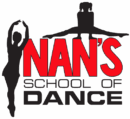Hip Hop – A Dance Style Full of Culture and Great Beats
A dance style thought to have originated in the Bronx during the late 1960s — Hip Hop has a relatively short dance history when compared to other types. While the movements and roots date back further, this natural dance style started in the streets as a marriage of movement and music. With a blend of modern, tap, swing and African dancing, Hip Hop is a class of its own when it comes to embracing improvisation and culture.
What is Hip Hop?
Hip Hop is a style of street dance that evolved from Hip Hop culture and music. While Hip Hop was started as a freestyle dance to be performed in the streets, clubs, and underground venues of New York, it has evolved into a more choreographed dance style. Focusing on high energy and complex footwork, Hip Hop embraces versatility and attitude at its very core.
Hip Hop didn’t develop only on the East Coast, but New York City artists invented a musical style conducive to the dance form. In South Bronx, Kool Herc was the first DJ to make unique rhythms by playing two record machines with the same record on both. Those beats laid the foundation for Hip Hop dance culture and allowed young African American and Latino youth a way to express themselves through dance.
Evolution of Hip Hop
In the 1980s and 90s, Hip Hop grew in popularity. The idea of a social Hip Hop dance party started to emerge with both informal and formal competitions. People began to share this type of dance to create a sense of unity and use their culture to create art. With the help of television and shows like Soul Train, Hip Hop was presented to the masses showcasing the earliest dance crews.
Fast forward to the present, and you have East Coast Hip Hop, West Coast Hip Hop and a blend of both with American Hip Hop. Still commercially popular, Hip Hop dances often make their way to social media — The Dougie, The Wobble, The Monestary, Stanky Leg, and Walk It Out. At Nan’s Dance Studio in Raleigh, we offer classes to children of all ages who want to study these styles of Hip Hop. Focusing on the bounces and rocks of old-school dance moves, our instructors and their movements are grounded in the foundational grooves of the culture.
Interested in Learning How to Dance Hip Hop?
At Nan’s School of Dance, our goal is to provide top-quality instruction at a competitive price. We encourage our students to reach technical proficiency in their favorite dance form and build self-discipline, poise, and self-esteem. We offer instruction in Ballet, Tap, Jazz, Contemporary, Hip Hop, Acro, and Pre-Dance, at all levels.
We love having new members in our dance classes and will help get your child acclimated to our dance school to make them feel right at home. When your child attends Nan’s School of Dance, they will become a part of our dance family and share in our love for dance!
Don’t forget to register!
From ballet to Hip Hop, we offer dance classes for ALL ages and skill levels in a variety of styles. We place students in classes that will challenge them while offering a fun atmosphere for learning and growth. We also offer Mommy & Me classes, (18 months – 2.5 years). Register online or give us a call at 919-803-6044 to hold your spot!
